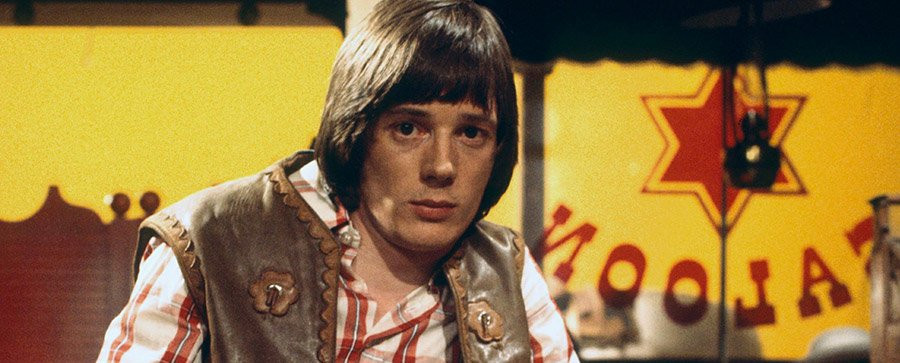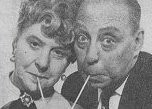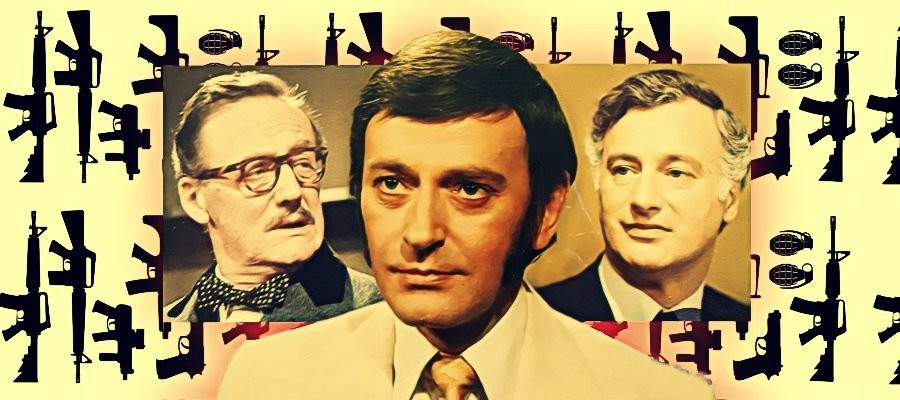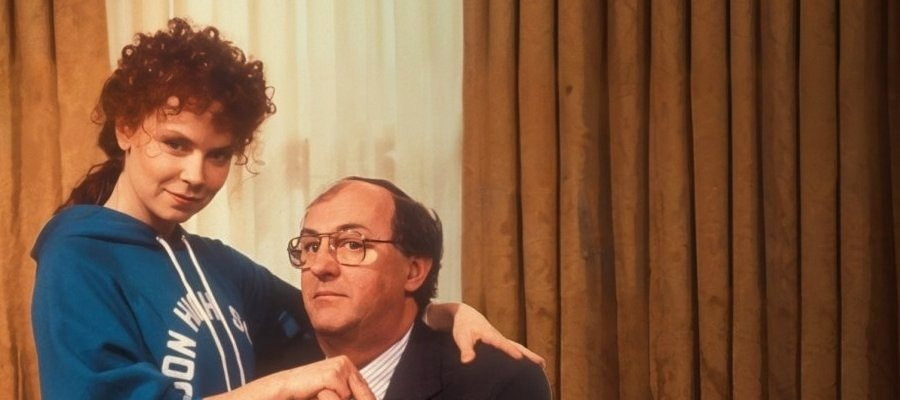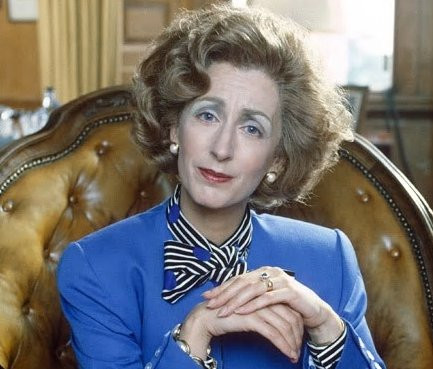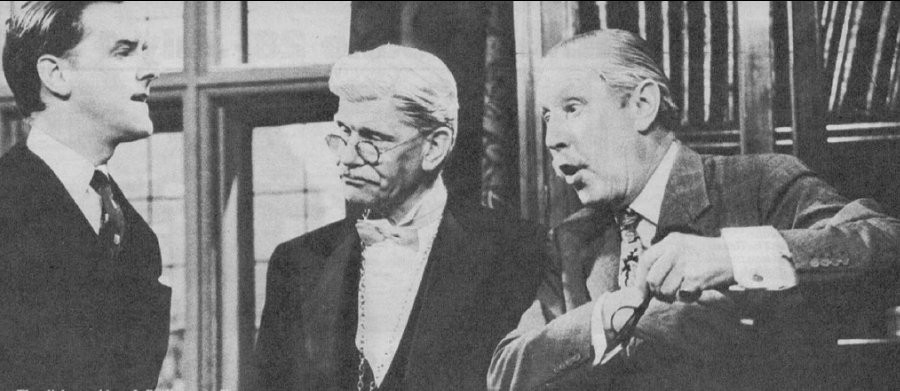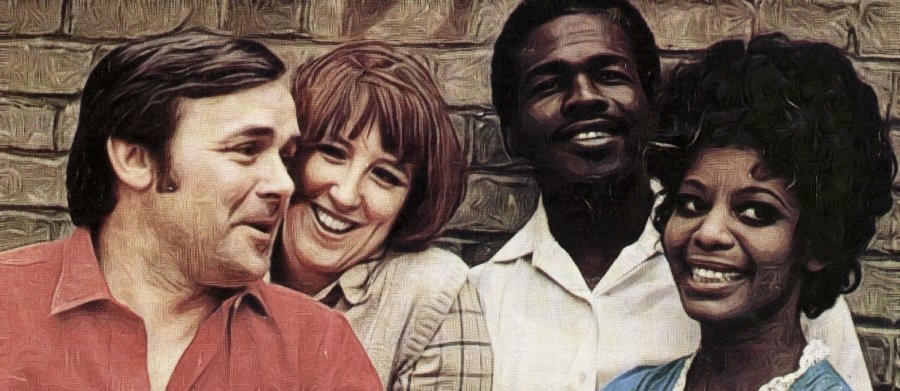
The Love Thy Neighbour Conundrum
Reflecting on programmes that have been lost to changes in society can be a minefield. Some programmes have been edited, such as the removal from Some Mothers Do ‘Ave ‘Em of Frank Spencer emerging from a barrel of tar to politely enquire as to the road he had been thrown into from his removal van. Others have survived but become the topic of hot debate, such as the Germans episode of Fawlty Towers, while some have a warning of the material potentially being offensive as they reflect a different time. There are even those that have simply disappeared from view, such as Croft and Perry’s glowing success, It Ain’t Half Hot Mum, ironically thought by many to be their finest work. However, one show that carried itself for eight successful series in the 1970s is guaranteed to draw a sharp intake of breath upon the mere mention of its name…Love Thy Neighbour.
Love Thy Neighbour was the brainchild of writers Vince Powell and Harry Driver. Powell’s career would bring him many a runaway success, including Bless This House and Never the Twain. The premise is hardly earth shattering: an extremely bigoted white man is appalled at what he sees as an invasion of immigrants eroding into his British way of life. His blinkered ignorance is pushed to the limit when a black family moves into the house next door.
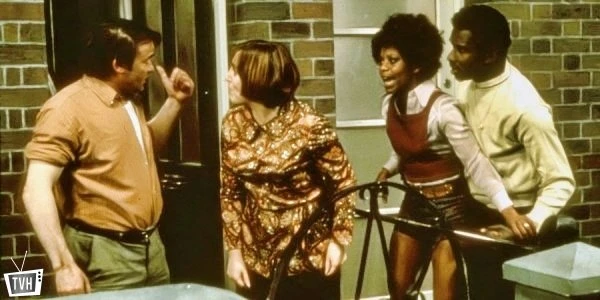
Starring in Love Thy Neighbour were Jack Smethurst and Rudolph Walker. Smethurst played the bigoted union leader Eddie Booth, while Walker played the neighbour Bill Reynolds. As with most sitcoms of the time, the pair’s disagreements were more intense than that of their more understanding wives, in this case played by Kate Williams and Nina Baden-Semper.
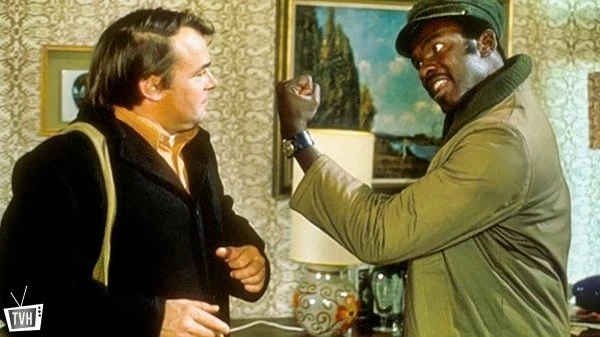
To watch Love Thy Neighbour now is an uncomfortable experience. The language used by Booth would see a swift ending of a Twitter or Facebook account if they were replicated today, with charges likely to follow. Ironically, Reynolds is equally intolerant of his neighbour with plenty of insults thrown his way too. Inevitably, stereotypes abound to add insult to injury, adding further squirms to the modern viewer. The pair despise each other and the wives try to keep things on a more civilised line, with a friendship existing between the two that is never replicated by their spouses. Reynolds is at once both the target of Booth’s racism and also the more superior of the two, ensuring that Eddie’s beliefs are put in their place.
That, in essence, is that…a simple situation of two neighbours not getting along. And before long, Love Thy Neighbour (1972 - 1976) had become a huge success. It’s difficult to fully appreciate where society was. While it’s easy to look back through fifty years of development and say how truly awful the show was, it’s easy to forget that to that point, no black characters were seen on television – at least not as central ones in one of the most successful primetime programmes of its day.
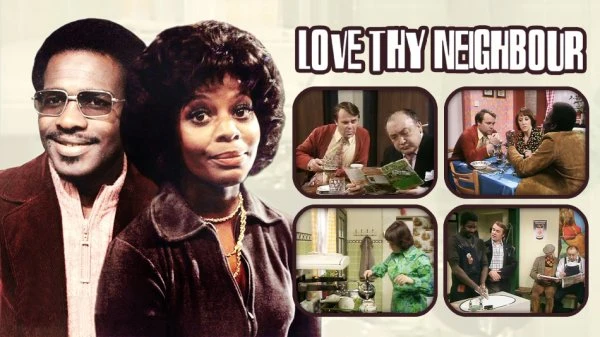
Baden-Semper became the subject of This Is Your Life in 1975, while Love Thy Neighbour continued to be a success, and of the four main stars, Walker became the most recognised when he achieved phenomenal success as Patrick Trueman in EastEnders. The reality of Love Thy Neighbour is that while its premise of a racist man dealing with a black neighbour should have been perfectly reasonable as a subject, the manner in which it delivered its comedy and the clumsiness of its writing delivered a much fiercer programme than it should have done. Booth is frankly a repulsive character, and while he does get put in his place on a constant basis, the programme itself comes across far more racist than In Sickness and In Health or ‘Til Death Us Do Part. Alf Garnett was stuck in a time warp, an old man bemused by changing society. Booth was simply unpleasant.

Writer Vince Powell wasn’t done with race though. Mind Your Language was another huge success when it arrived in 1977, one year after Love Thy Neighbour left the screens. This time Powell’s show dealt less with a racist and instead went down the road of racial stereotypes. Indeed the central character was a highly educated, likeable man in the form of mild mannered English language teacher Jeremy Brown, played by Barry Evans. The stereotypes come in the form of the attendees of Mr Brown’s class. While none of the classmates are made to be unpleasant, all are sent up to some degree. Ironically, due to his good nature Brown elicits sympathy, being far from racist, and so while the humour is less brutal in language, in a bizarre way the programme seems to be little improvement on Love Thy Neighbour.
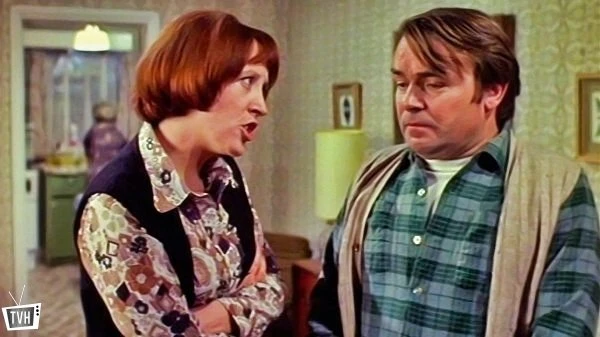
For programmes nearly 50 years old it’s now very difficult to look at either show with any sort of affection. However, they do go to show how times have changed. Could you run either on television now? Absolutely not, and rightly so. However, the topics remain valid. The Simpsons has only just emerged from its much debated stereotypical Indian corner shop controversy, Apu having been a significant part of the programme’s success across three decades. Modern Family dabbled in the ‘black family moving in’ routine, Jay Pritchett fearful that as he was installing security cameras on the same day a black family arrived in the neighbourhood, he would be seen as a racist old man. And even M*A*S*H, surely one of the best written shows in television history, couldn’t resist an element of typecasting when pitting a Greek and Turkish patient in constant confrontation in Post-op beds.
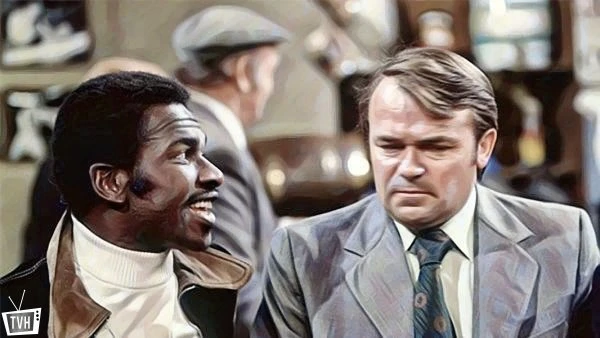
Race in comedy is getting more and more of an awkward subject to deal with, but even more so when done so retrospectively. No young eyes can look at an episode of Love Thy Neighbour and not be astonished at what they see. What they will not see however is the appearance of a black actor in primetime television for the first time. They won’t see the society of the 1970s that saw people like Eddie Booth frequently airing the same views as the unpleasant television character. With so many Booths around, it was perhaps necessary to put him on primetime television in order to bring him down. So while neither Love Thy Neighbour, nor Mind Your Language may warrant a place in Television Heaven, perhaps there should be an acknowledgement that they may have been a necessary evil - of their time, for their time but perhaps best left there.
Review by Brian Slade:
Born and raised in Dorset, Brian Slade turned his back on a twenty-five-year career in IT in order to satisfy his writing passions. After success with magazine articles and smaller biographical pieces, he published his first full-length work, `Simon Cadell: The Authorised Biography'.
Brian is a devoted fan of the comedy stars of yesteryear, citing Eric Morecambe, Ken Dodd, Harpo Marx and Dudley Moore amongst his personal favourites. He was drawn to the story of Simon Cadell through not only `Hi-de-hi!' but also `Life Without George', a programme he identified with having grown up in the Thatcher era.
Published on September 28th, 2021. Written by Brian Slade for Television Heaven.



